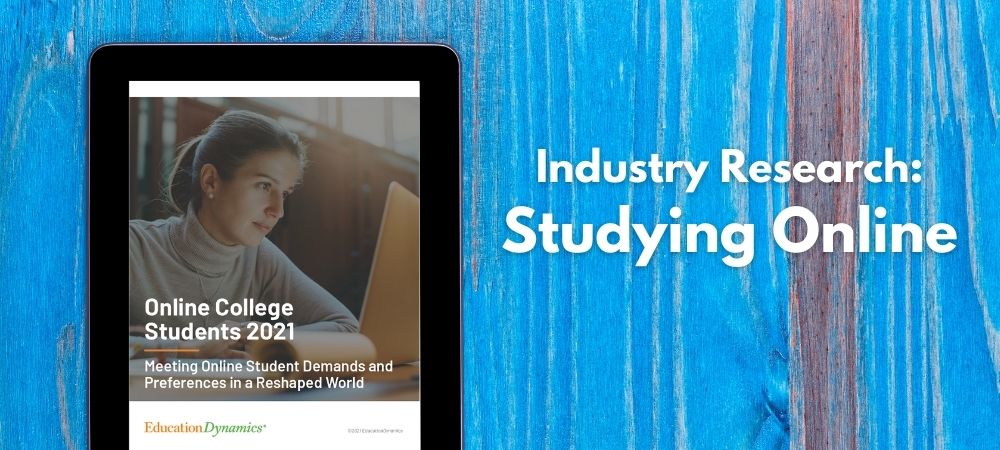You might think college students embraced remote online learning simply because they had to amidst the chaos of the last two years. You’d be wrong.
No doubt, COVID-19 changed the game by driving an unprecedented dependence on online learning.
An impressive study by EducationDynamics, aimed to determine the preferences of college students who now study online, uncovered many interesting revelations. Many of the results of the study are likely to surprise you, and possibly, inspire you to revisit your school’s approach to remote learning going forward.
Online learning is destined to increase steadily in the years ahead. Let’s take a look at where students stand and what matters to them now.
Is online learning inferior?
If we look to the online learners that took part in the survey, the answer is a definitive no. 75% of students state online study is better than, or as good as, classroom study.
Let’s look at where students stand on the cost. Again, the question is, “Is online education less valuable?” Again, the answer is a definitive no. 74% claim online education is worth the cost.
Check out this out…
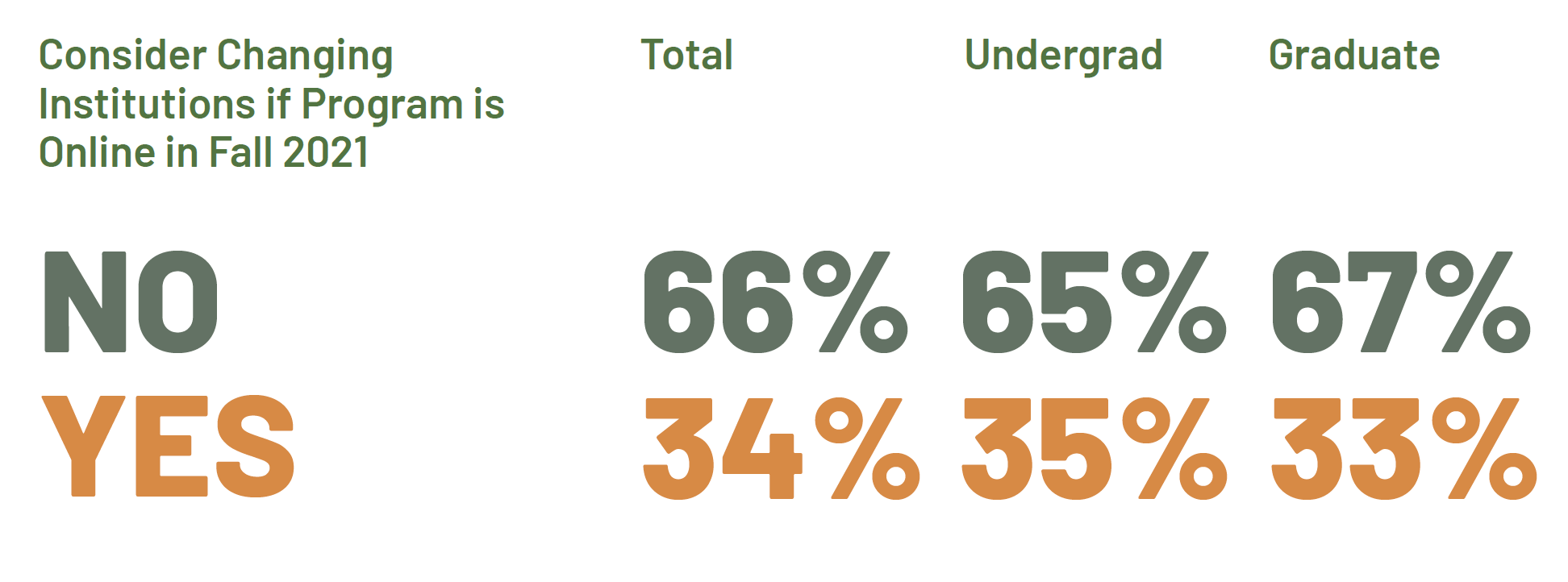
What do online students study?
Though the list of subjects is long, the majority of online students study the following fields:
- Business
- IT
- Health and medicine
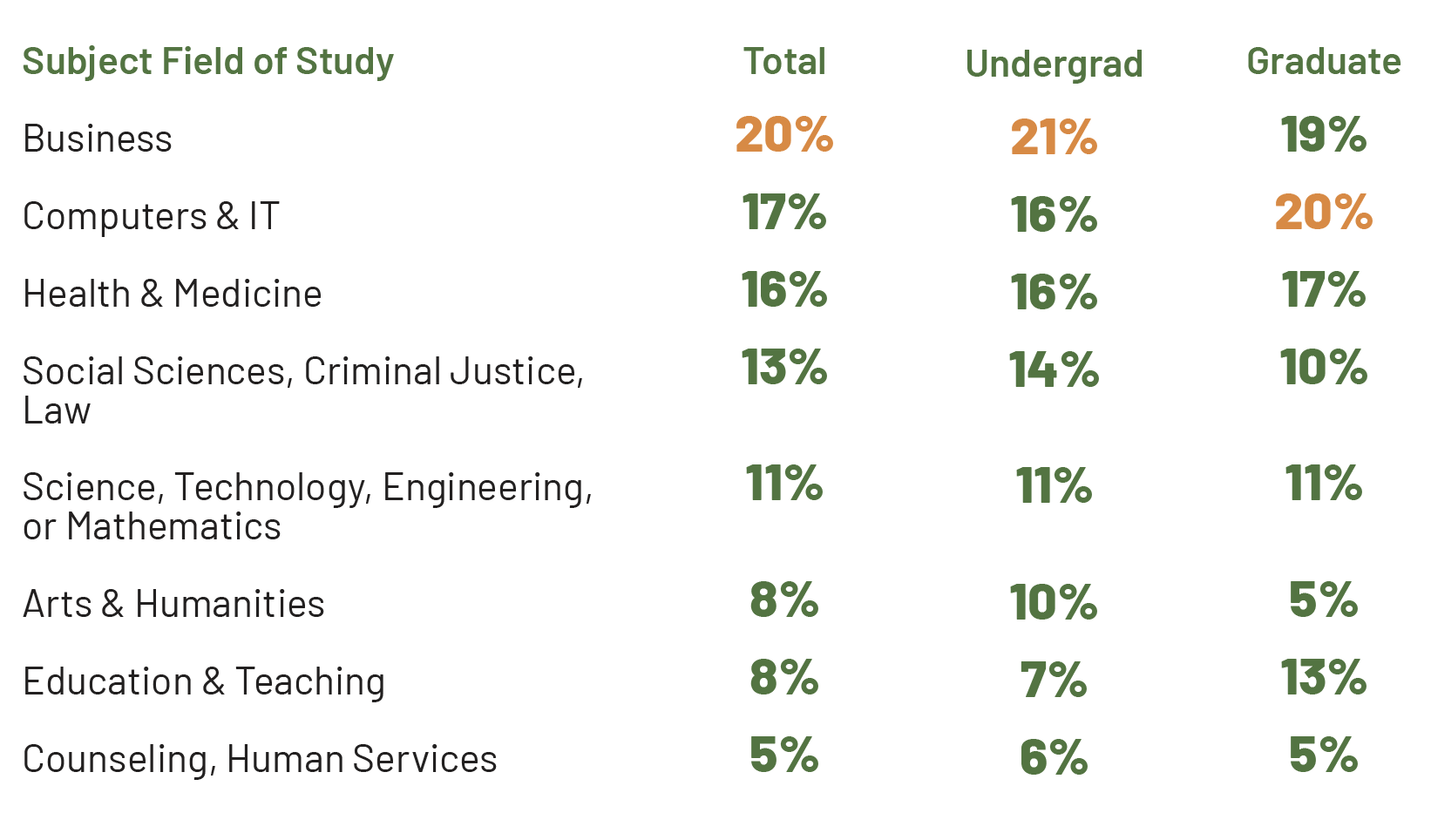
If your college offers degrees for the subjects above and aims to grow its enrollment, you’ll want to examine how your online programs are marketed.
In the report, EducationDynamics offers the following in its conclusion:
“More and more, prospective online students are being attracted to short-term credentials (e.g., certificates and licensure programs and stackable certificates.) For those who have limited resources and need job skills quickly, these certificate and licensing programs are the routes to meeting career objectives in a timely basis.”
What do online students want?
EducationDynamics called this section of their study “career motivations” and the winners were:
- Start a new career to earn more money
- Start a new career more aligned with my interests
- Get my first professional/salaried job
Which services matter most?
For this question, the list of choices was long, and the responses were varied. However, if you work in admissions, you’ll want to note the top three answers were:
- Career planning and placement
- Financial aid advising
- Access to faculty to academic advising
Another question in the study focused on the career services online students use. The top five are:
- Self-assessments (see below)
- Working with a career advisor
- Job search assistance
- Job search website maintained by the school
- Resume creation

Any offer takeaway: offer robust job-related services.
Do serious students study with smartphones?
They do.
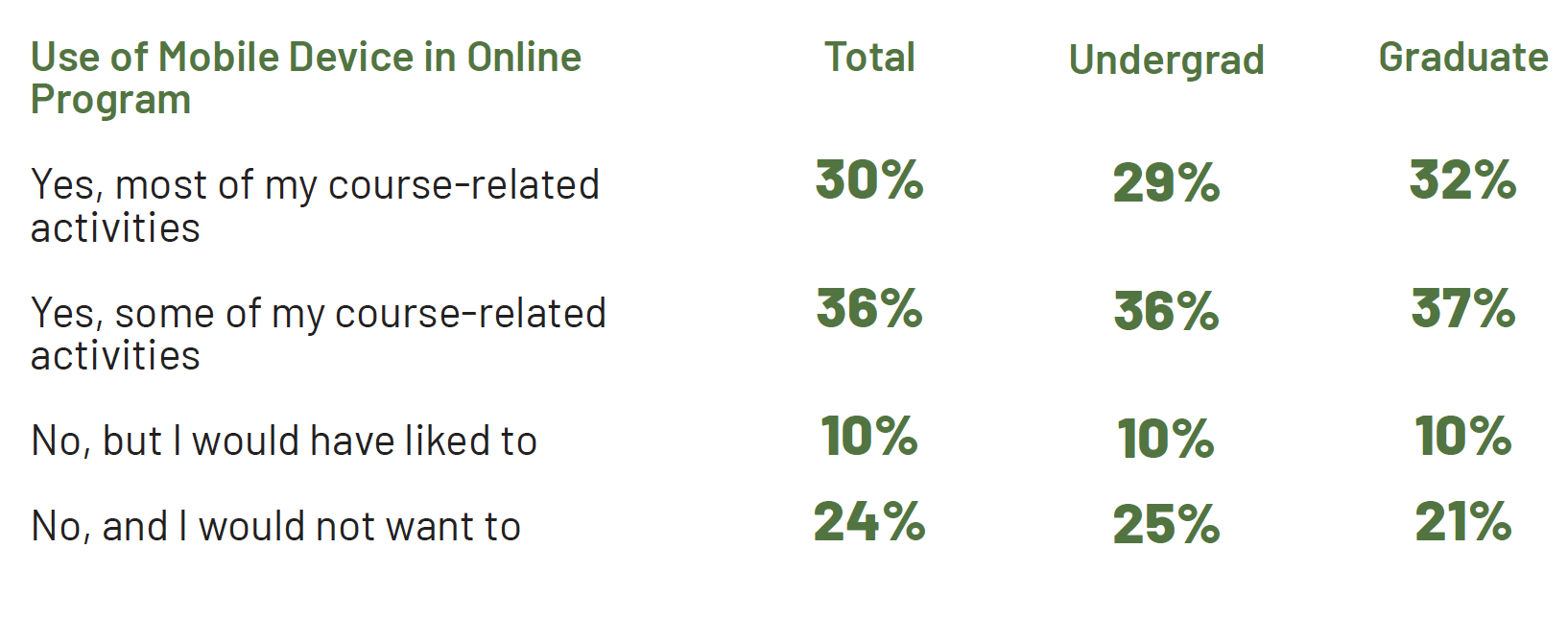
The majority of online students handle a variety of course-related activities with mobile devices. Here’s what they do most:
- Check grades, assignments and schedules
- Communicate with professors
- Read content
- Watch content
- Research
- Communicate with other students
Clearly, it’s important your LMS and content is mobile-friendly.
Does every student want to stay home?
No, no, and absolutely not! Your take-away from EducationDynamics shouldn’t be the classroom is soon to become a relic of the past.

As you see here, while more than one-third love learning online, the majority of students now prefer hybrid study. Don’t shut your campus down.
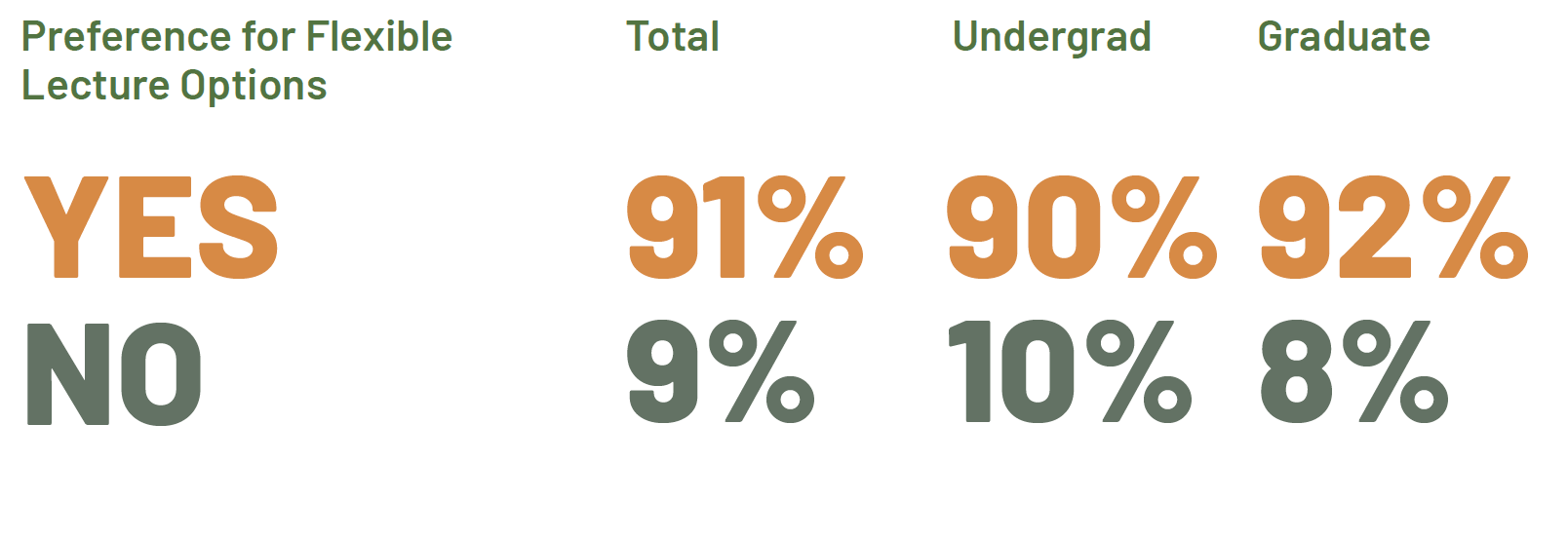
Which factors affect enrollment?
This is clearly an all-important data set for schools looking to expand.
Look away for a second and try to guess what factors most into the student’s decision…
And the winner is the cost of tuition and fees. It’s close though:
- Costs – 26%
- Programs that match my career goals – 23%
- Availability of online programs – 20% (Interesting!)
- Length of time to complete my studies – 19%
- Availability of flexible formats – 18%
- Reputation of the college or program – 18%
- Professional accreditation of my program – 16%
Does the data above give you ideas? I hope so.
What influences online students most?
The line between “what factors affect” (above) and “most influential” (below) is a bit cloudy, but you’ll find this second list interesting:

The winner is online reviews, followed closely by rankings, and then, by opionions of friends. All three fit comfortably in what marketers call “social proof” and word-of-mouth, so if you’re creating content and social media for your college you’ll definitely want to pay heed to these influential factors.
What else are we looking at here?
EducationDynamic’s research report is crammed with valuable data. Here are some additional data points that stood out:
- 69% of online students claim COVID-19 did not impact their studies.
- 63% of online students are female.
- 70% of online students are enrolled in a full-time program.
- 45% of online students are employed full-time and 21% part-time.
- 63% of online students live within 50 miles of their school.
- 40% of online students are reimbursed by their employers.
And finally…
The current market of fully online students is 20%. The number is projected to grow at a steady pace. Hopefully, this post (and the research it cites) will give you valuable insights into satisfying the ever-expanding demand for remote learning.







